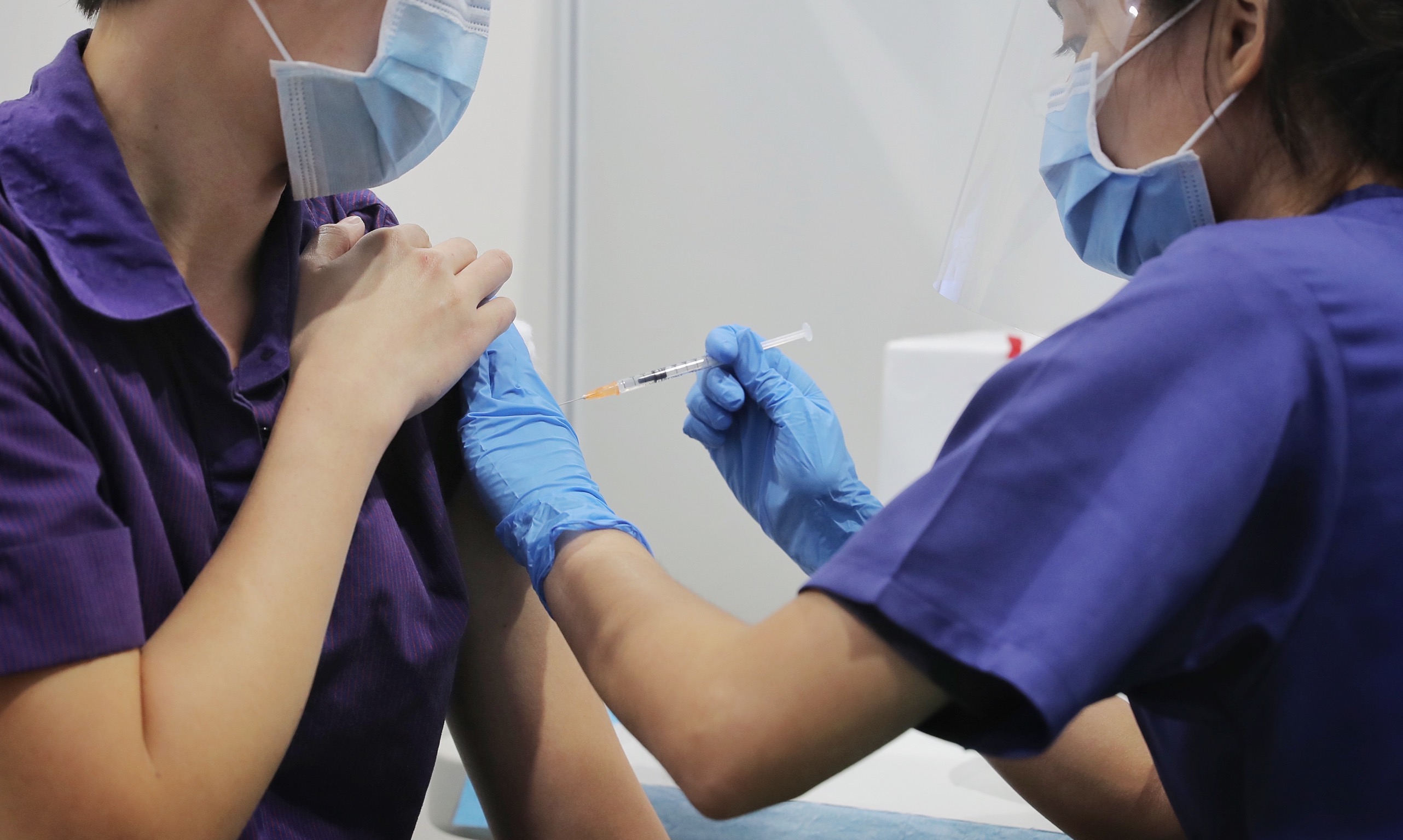0.12% of over 7.5 million Covid-19 vaccine jabs linked to suspected adverse events: HSA
Sign up now: Get ST's newsletters delivered to your inbox

The Health Sciences Authority said the adverse events were consistent with those typically observed after any vaccination.
PHOTO: ST FILE
Follow topic:
SINGAPORE - The rate of suspected adverse events linked to the Covid-19 vaccines under the national vaccination programme stands at 0.12 per cent, said the Health Sciences Authority (HSA) on Monday (Aug 16).
The report - the fourth safety update for the Pfizer and Moderna vaccines under the national vaccination programme - this time also included the Sinovac-CoronaVac shot under the special access route.
For the national vaccination programme, a total of 7,567,466 doses have been administered, out of which 9,403 suspected adverse event reports were received.
Of these, 389 reports - or 0.005 per cent of administered doses - were classified as serious adverse events, as at July 31.
For the Sinovac vaccine, 47 reports - or 0.0451 per cent - were received for 104,061 doses, including four serious reports.
The most commonly reported adverse events for the Pfizer and Moderna vaccines include dizziness, shortness of breath, chest tightness or discomfort, injection site reactions such as pain and swelling, fever and allergic reactions.
HSA said the adverse events were consistent with those typically observed following any vaccination.
"These typically resolve within a few days. Among the serious adverse events reports, the most frequently reported adverse events were anaphylaxis and other severe allergic reactions."
For teens aged between 12 and 18, the most commonly reported symptoms include rashes, hives, swelling of the eyelids, face and lips, shortness of breath, fever, dizziness, light-headedness and fainting.
HSA added that fainting has been reported particularly in this age group, and it is generally triggered by anxiety and fear of pain during the vaccination process, rather than the vaccine itself.
The local incidence rate for such incidents in this age group is similar to overseas reports, it said.
However, rare incidences of anaphylaxis, a severe life-threatening allergic reaction, have been linked to the Covid-19 vaccines.
HSA said it is a known adverse reaction associated with vaccines in general, and the incidence rate locally is similar to those reported overseas.
It also said rare cases of myocarditis and pericarditis, or inflammation of the heart muscles and outer lining, have been reported with messenger ribonucleic acid (mRNA) Covid-19 vaccines in Singapore and other countries. The Pfizer and Moderna shots are mRNA vaccines.
HSA said: "In most cases, the inflammation is mild. Myocarditis and pericarditis are not heart attacks, which are usually caused by blockage of the blood vessels that supply the heart.
"Although there is a small increased risk of myocarditis and pericarditis in the younger age groups (30 years and below), the local incidence rate remains low.
HSA, in its statement, said most cases in the younger age group have responded well to treatment and have recovered, or were discharged well from hospital.
It said: "It is important to note that heart attacks and strokes occur naturally within our population, regardless of whether or not people are vaccinated.
"The frequency of heart attacks and strokes in vaccinated persons locally is within the background incidence rates, and to date, there is no evidence that the vaccines can directly cause these events."
Cases of Bell's Palsy - a condition where inflammation of the facial nerve causes facial muscle weakness - have also been observed in some vaccine recipients.
Usually, patients will recover completely even without treatment.
The incidence rate is also within the background incidence.
HSA said, based on the data so far, the benefits of the Pfizer and Moderna Covid-19 vaccines continue to outweigh the known risks in a pandemic.

